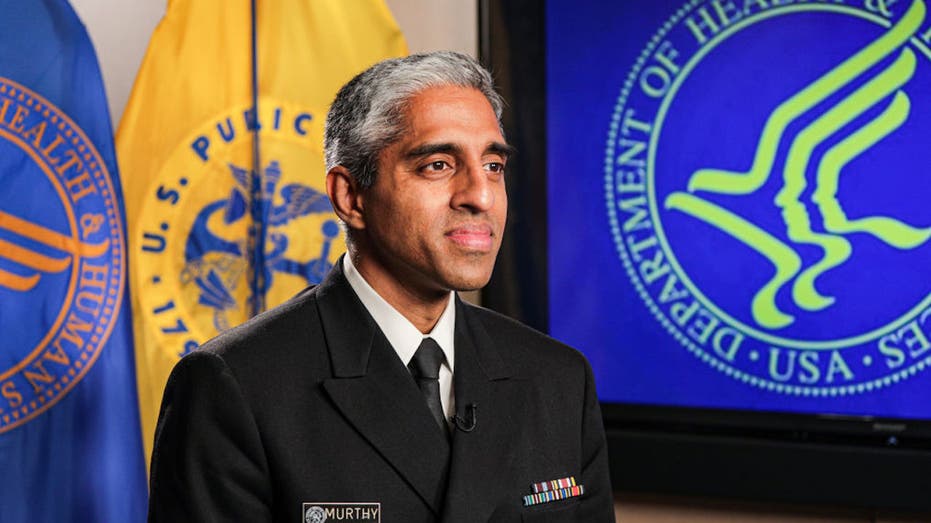As part of the federal government’s initiatives to improve mental health care, the U.S. Surgeon General Dr. Vivek Murthy in Washington, D.C., has released an advisory titled “Our Epidemic of Loneliness and Isolation: The U.S. Surgeon General’s Advisory on the Healing Effects of Social Connection and Community.”
The surgeon general, in the advisory, warned that Americans “wired for social connection” have become more isolated over time.
Loneliness presents a serious health risk, the doctor warned — even more so than heart disease, dementia, stroke, depression and anxiety.
“The mortality impact of being socially disconnected is similar to that caused by smoking up to 15 cigarettes a day, and even greater than that associated with obesity and physical inactivity,” he wrote.
LONELINESS AND UNHAPPINESS CAN AGE US FASTER THAN SMOKING: NEW STUDY
About 50% of adults in America have reported experiencing loneliness, according to the advisory.
Improving social connections has the potential to boost people’s overall health and wellness and to boost longevity, the advisory said.
“Large population studies have documented that, among initially healthy people tracked over time, those who are more socially connected live longer, while those who experience social deficits, including isolation, loneliness and poor-quality relationships, are more likely to die earlier, regardless of the cause of death,” the surgeon general wrote.
The effects of loneliness and isolation could be just as detrimental as risk factors such as smoking, alcohol consumption, high blood pressure, obesity and air pollution, the advisory stated.
The surgeon general also claimed that maintaining social connections can improve people’s educational and economic achievements.
Beyond the individual benefits, Dr. Murthy pointed out that social connection can improve health and success on a community level.
Multiple studies have shown that “social connection is vital not only to our individual physical, mental and emotional health, but also to the health and well-being of our communities,” the doctor wrote.
“Social connection is an important social determinant of health, and more broadly, of community well-being, including (but not limited to) population health, community resilience when natural hazards strike, community safety, economic prosperity and representative government,” he added.
While the surgeon general said in the advisory that the problem began well before COVID-19, he admitted that the pandemic contributed to the decline in social connections.
He described how canceled celebrations, forced online education, family separations, job loss, financial hardships and other restrictions led to unprecedented feelings of loneliness and isolation.
TIKTOK TELEHEALTH? TEENS PUT AT RISK BY SELF-DIAGNOSING MENTAL HEALTH ON SOCIAL MEDIA
Dr. Marc Siegel, professor of medicine at NYU Langone Medical Center and a Fox News medical contributor, told Fox News Digital that after speaking with Dr. Murthy, “He thinks we had a trend in this country before and the pandemic made it worse.”
Dr. Siegel agreed that the pandemic exacerbated the problem by forcing people to turn to social media as their primary form of connection and communication.
“It’s easy to say, ‘Let’s build an infrastructure for loneliness,'” Dr. Siegel said. “But how are you going to battle TikTok?”
He added, “I don’t think it’s an accident that the pandemic made it worse. I think the hyper-focus on a virus was done to the exclusion of all of these deeply rooted social problems we have.”
By forcing people to live in “invisible bubbles,” the pandemic significantly changed the way they interact and connect, said Dr. Gary Small, chair of psychiatry at Hackensack University Medical Center in New Jersey.
“Children missed the important socialization of their formative years, while the elderly and sick and homebound got few, or no, visits,” Dr. Small told Fox News Digital.
FACE MASKS MADE ‘LITTLE TO NO DIFFERENCE’ IN PREVENTING SPREAD OF COVID, SCIENTIFIC REVIEW FINDS
“We’re social animals, and isolation — the lack of touch and in-person gatherings — fuels loneliness, anxiety and depression. It even has an impact on our cognitive ability,” he continued.
“What’s concerning, as the surgeon general said, is that loneliness and isolation persist even as the worst of the pandemic has passed and in-person interactions have largely returned.”
Society should focus on six pillars, said the surgeon general, as a means of improving social connection.
The first is “strengthening social infrastructure in local communities,” he said.
This includes such things as sports programs, religious groups, public transportation, volunteer organizations, recreational spaces, libraries, housing and education, per the advisory.
Next, the surgeon general called for “enacting pro-connection public policies,” which would entail governments getting involved in setting policies to strengthen social connection and community.
“I agree that there should be public policy that fosters connectivity and recognizes social isolation and loneliness as something that’s practically a disease,” Dr. Siegel said.
For the third pillar, Dr. Murthy identified “mobilizing the health sector,” which would entail training health care providers, assessing and supporting patients, and expanding public health surveillance and interventions.
WHO SAYS GLOBAL ANXIETY AND DEPRESSION INCREASED 25% DUE TO COVID-19 PANDEMIC
“Reforming digital environments” is the fourth pillar, which calls for using technology in a way that minimizes harm and promotes healthy social connections.
“We must learn more by requiring data transparency from technology companies,” the surgeon general also said. “This will enable us to understand their current and long-term effects on social connection, and implement and enforce safety standards, such as age-related protections for young people, that ensure products do not worsen social disconnection.”
The fifth pillar calls for deepening our collective knowledge, with the goal of increasing public awareness of the problem, ramping up funding for research and creating a plan for future research.
Finally, the sixth pillar is “cultivating a culture of connection.”
This focuses on demonstrating “kindness, respect, service and commitment to one another,” Dr. Murthy wrote. This also includes fostering social connections in schools, workplaces and communities.
CLICK HERE TO SIGN UP FOR OUR HEALTH NEWSLETTER
Failing to improve social connections could come at a high cost, Dr. Murthy warned.
“We will continue to splinter and divide until we can no longer stand as a community or a country,” he wrote. “Instead of coming together to take on the great challenges before us, we will further retreat to our corners — angry, sick and alone.”
Overall, Dr. Siegel said he believes the surgeon general’s advisory is a positive step in the right direction, but he is unsure whether it will work.
“This is a good idea, but I am concerned that it won’t impact on prevailing trends in social media and in society,” he said.
Article Source: Health From Fox News Read More




